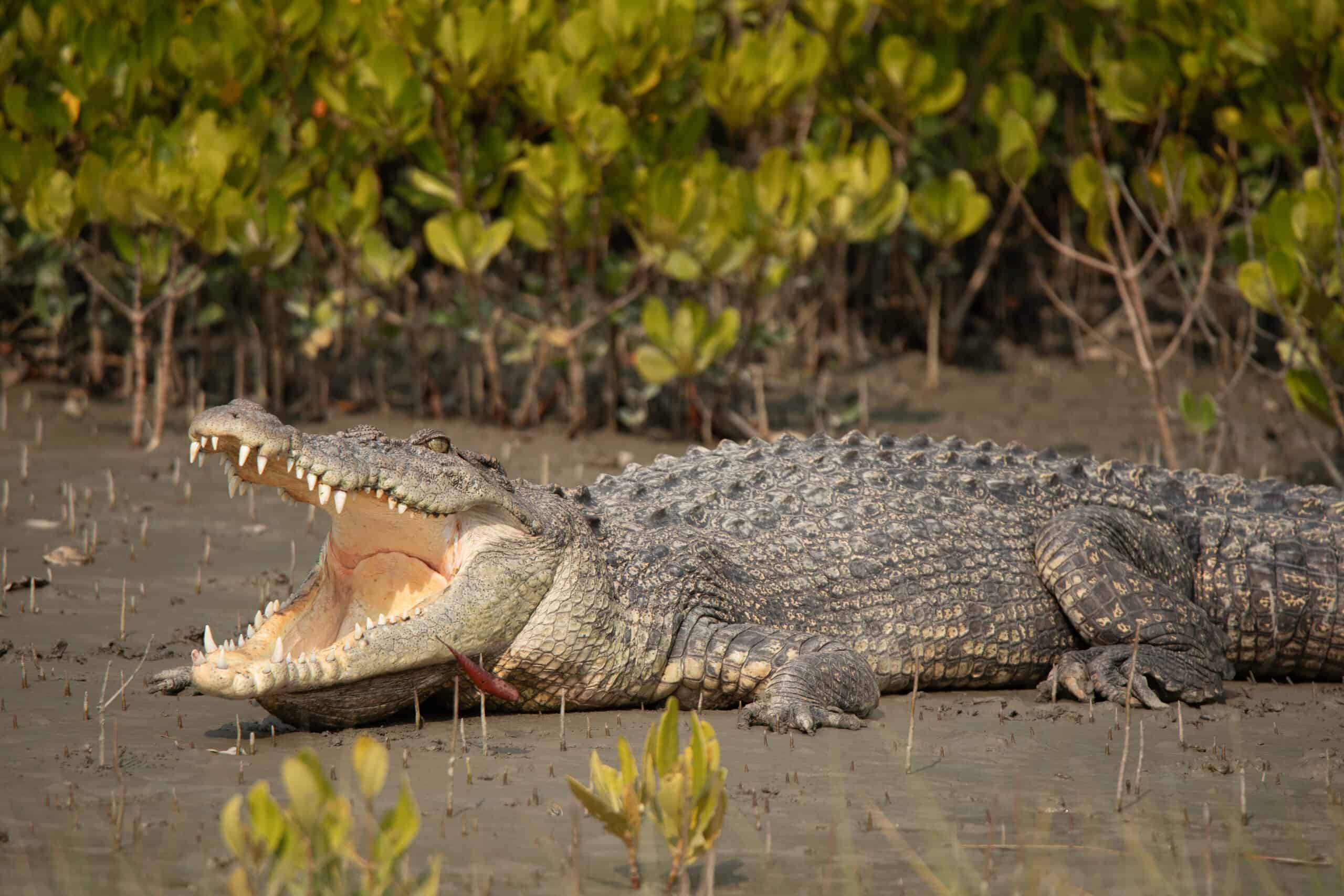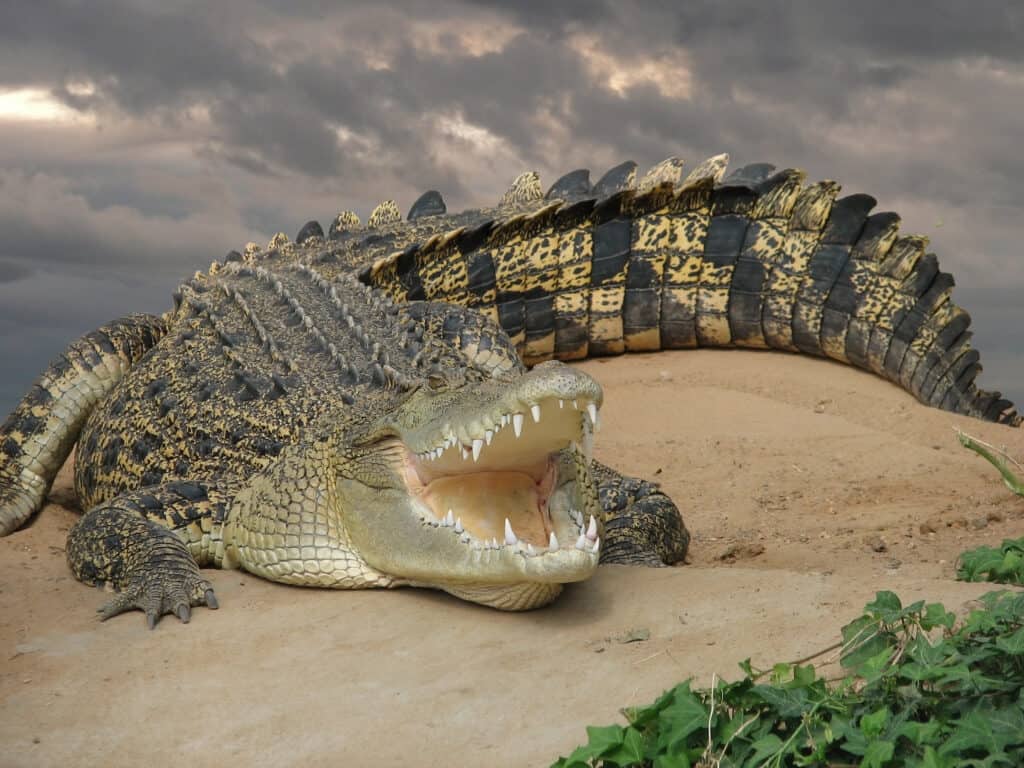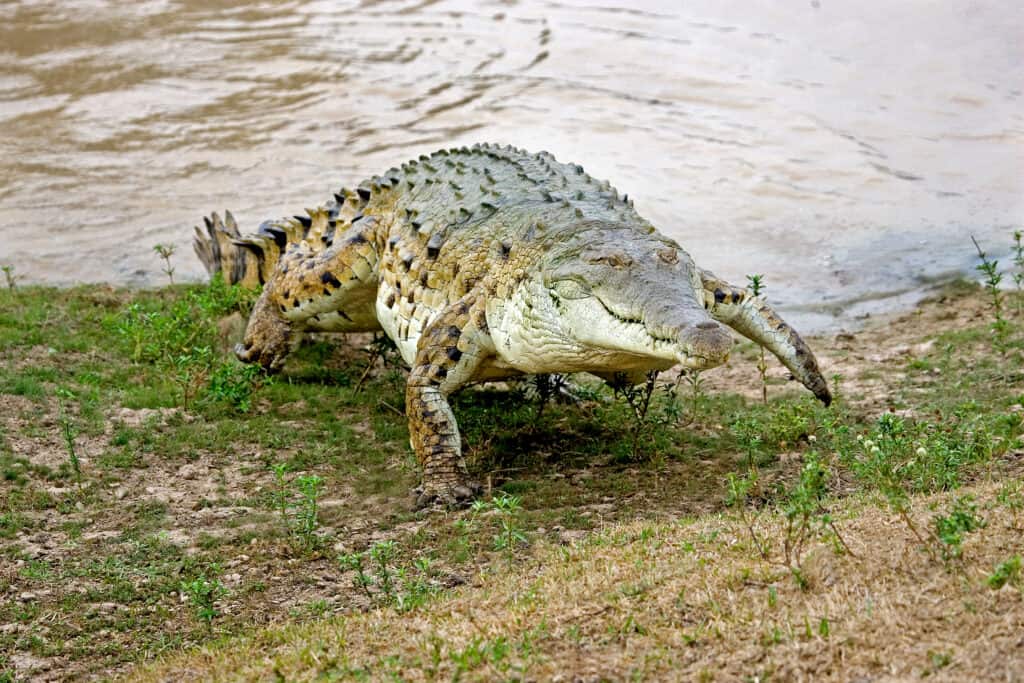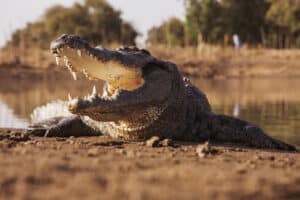Continue reading for our analysis...

This intense video captures the very moment a massive saltwater croc, short for crocodile, charges into water from the riverbank. Filmed somewhere in Australia, the lucky boaters saw the absolute speed and power of this giant apex predator. Saltwater croc speed depends largely on whether they are on land or in water. Let’s learn about these incredible reptiles before watching the video above!
How Fast Is a Saltwater Croc?
As previously mentioned, the speed of a saltwater croc is relevant to their location: land or water. These creatures are built for the water but don’t fare too poorly on land, either.
Saltwater Croc Speed on Land
With their heavy bodies and short legs, you might think saltwater crocs can’t move very fast on land, but you would be wrong! So, just how fast can they run? Well, the saltwater croc reaches 15-18 miles per hour (mph) without much trouble. They have the ability to raise their body up off the ground, which reduces drag. Their sharp claws dig into the earth and help propel them forward. Smaller species of crocodile, such as the Nile variety in Africa, can reach speeds up to 22 mph.
Saltwater Croc Speed in Water
In the water, the saltwater croc is absolutely at home. With their long paddle-like tails, they can propel themselves forward with very little effort. This tail is well-muscled and very strong. Their heads are also wide and flat, which allows them to cut through the water without too much drag. It’s no wonder the sight of this saltwater crocodile charging into the water was quite a sight for the boaters!
While the saltwater croc’s swim speed isn’t any faster than its run, the danger comes in that they can swim for a long time without tiring. If you thought swimming was their only talent, you’d be wrong again. Crocodiles also have the ability to lie in wait underwater without breathing for up to eight hours!

Although they have short legs, saltwater crocs can reach speeds of 15-18 mph on land and are just as fast in the water.
©Susan Flashman/Shutterstock.com
How Strong is a Crocodile?
We’ve talked about the incredible speed of a saltwater croc, but how powerful are they? Well, the saltwater croc possesses the highest-ever recorded bite force of any animal on the planet!
Professor of Anatomy at Florida State University, Dr. Gregory Erickson, recorded the record-breaking bite. In an article he published in Scientific American in 2018, Dr. Erickson details the terrifying experience. The crocodile used for the test measured 17 feet in length and weighed a whopping 1,200 pounds. The bite force it produced equaled 3,697 pounds per square inch (psi). That’s 297 pounds more weight than a 2,000-gallon propane tank! Can you imagine that kind of force clamping down on your arm?

The Orinoco crocodile, found in South America, is critically endangered.
©slowmotiongli/Shutterstock.com
Are Crocodiles Endangered?
Yes! Seven species of crocodilians currently find themselves on the ICUN Red list of endangered species. Crocodilian is a family of reptiles that includes crocodiles, alligators, caiman, and gharials. Some of these include the Orinoco crocodile and the American crocodile. ICUN lists a further four species as vulnerable.
Crocodile Conservation
Despite the saltwater croc’s speed and power, many people around the world love these creatures and strive to prevent their extinction. Steve Irwin of Australia Zoo dedicated his life to wildlife conservation. His special interests always lay with the crocs. Though Steve passed away on September 4, 2006, his wife (Terri) and children (Bindi and Robert) still maintain the zoo and the 330,000-acre Steve Irwin Wildlife Refuge. Other saltwater croc conservation organizations include Crocodiles of the World and the International Crocodilian Farmers Association.
Thank you for reading! Have some feedback for us? Contact the AZ Animals editorial team.







